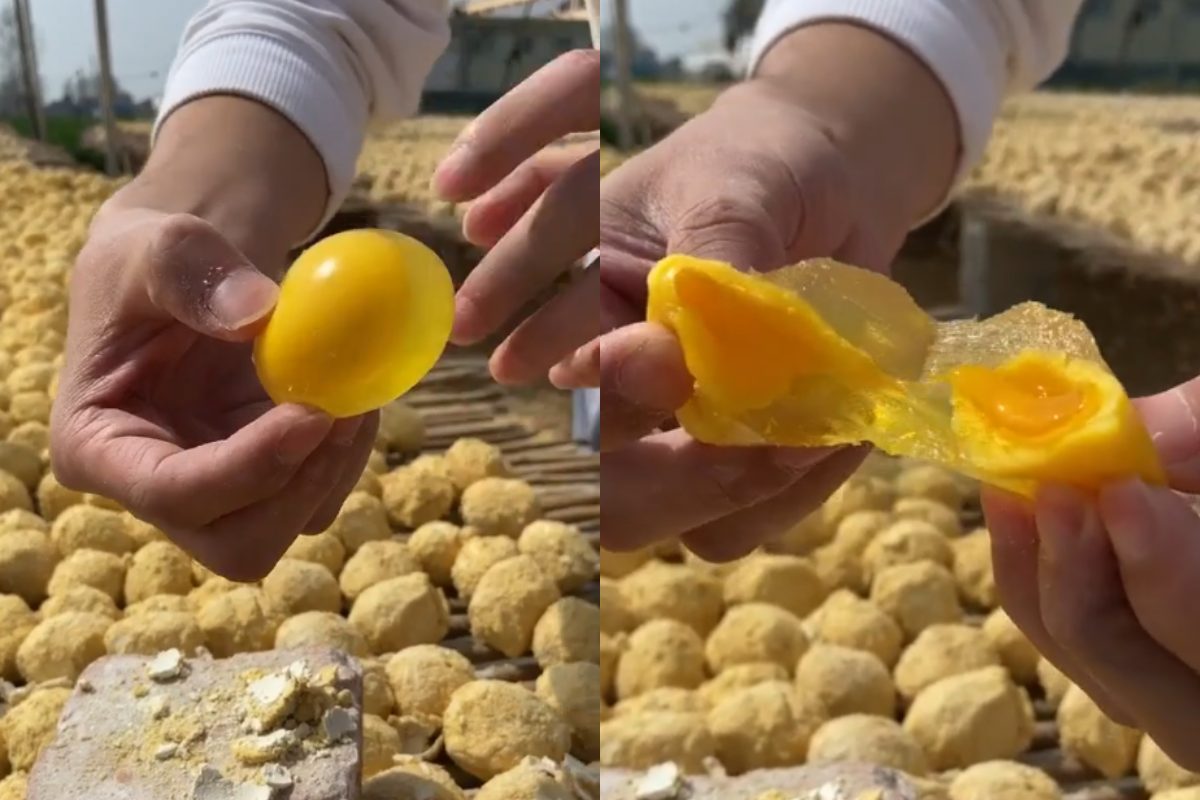What Are Changing Eggs? What You Need to Know About the Chinese Rubbery, Creamy and Transparent Eggs
This is not the centenary egg although both are Chinese egg-based specialties. The "changing egg" is a typical street food of the Henan province: they are chicken or duck eggs preserved in clay to make them last longer.
;Resize,width=742;)
Changing eggs are a typical dish from Henan, China, and are a variant of the century egg. They are often called bian dan, the same term sometimes used for the black egg (also called pidan) that horrifies Westerners, but they are two different preparations, with two very different results both in aesthetics and in flavor.
Henan changing eggs are made from chicken or duck and are preserved in a mixture of clay, salt, and ash for a variable period of time (4–5 days in summer, about a week in winter). This preservation process causes a series of chemical reactions that transform the egg: the egg white becomes gelatinous, dark and translucent, has a firm consistency and a savory and slightly smoky flavor; the yolk is creamy, with a color that varies from yellow-green to gray-green, with a rich and intense flavor. Unlike the centenary egg, they have both a much more neutral smell and flavor, similar to that of a hard-boiled egg. The "classic" centenary egg has a flavor reminiscent of blue cheese. Let's see together all the details of this strange preparation.
What Are Changing Eggs?
According to The Eastern Philosophy, an Instagram channel specializing in the cultural dissemination of Far Eastern practices, "Changing eggs are a rural snack considered a specialty of Henan. The process of preserving eggs not only gives eggs a completely different flavor, texture, and eating experience, but also allows them to stay fresh much longer than non-preserved eggs. This helps reduce food waste and allows rural farmers to stock up on eggs for Chinese New Year celebrations with family and friends."
These are golden yellow eggs, with transparent egg whites and a more neutral smell and taste than century-old eggs. It may seem tragicomic but they are very popular among alcoholics: according to Chinese medicine, this preservation process neutralizes the acidity of alcohol and therefore it is believed that regular consumption of these eggs helps regulate the acidity and alkalinity of the body. These eggs would reduce hangovers and, again according to traditional Chinese medicine, would help fight diarrhea, gastroesophagal reflux and stomach pain. Needless to say, in none of the theses have we found any scientific evidence.
According to the Purple Cloud Institute, "they are relatively easy to make, inexpensive, and once you get over the initial hesitation, they are popular with Westerners. They are also known by a variety of alternative names such as amber eggs (hu po dan琥珀蛋), diamond eggs (zuan shi dan钻石蛋), pine flower eggs (song hua dan松花蛋), and crystal eggs (shui jing dan水晶蛋)."
The confusion between these eggs and century eggs comes from a Western misinterpretation of their original name, bian dan. The two preparations belong to the same “family” of preserved alkaline eggs but the “recipe” is different, as are the appearance and flavor.
;Resize,width=767;)



